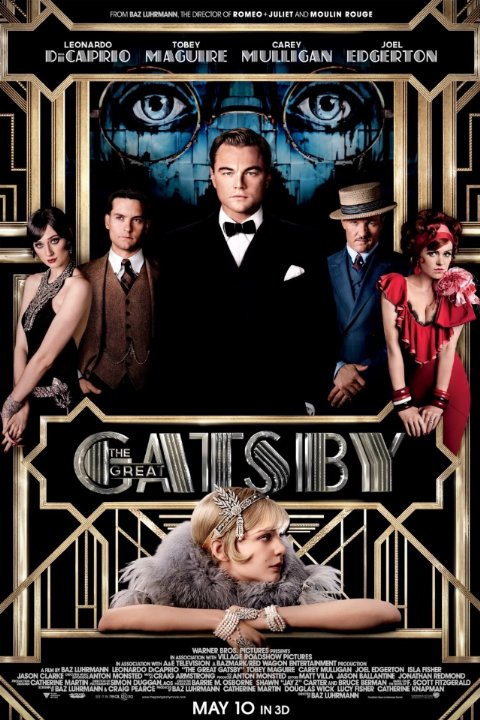Rating of
N/A
THE GREAT Gatsby
HFolmar - wrote on 05/23/13
Upon the release of the Great Gatsby I was a bit nervous of its quality. Normally movies tend to be a disappointment when compared to their novel counterparts. I have always made it a personal rule to never see a movie without first reading the book and this case was no different. This classic tale of deceit, scandal, and murder would be hard to beat, but surprisingly the film was able to live up to the book's captive and thrilling reputation.
Luhrmann's theatric interpretation of F. Scott Fitzgerald’s novel is a thrilling, bright, and fast-paced drama that kept me on the edge of my seat for the entire two and a half hour run time. It is full of eye-catching scenes that completely convey the intended message of the plot, the decay of the social and moral values as well as the American dream of the 1920s. The flashy brand new castles of West Egg teeming with eccentric party goers, the beautiful sprawling estates of the long established wealthy generations of East Egg, and the dark and mysterious eyes of Dr. T. J. Eckelburg over the dirty happenings of the area between the two, all contribute to the extensive sensual imagery which makes the viewer feel as if they were actually partaking in the events. The actors were wonderfully perfect for their roles and I have nothing but praise for them. DiCaprio, a favorite actor of mine, played an excellent Gatsby and was able to represent the many layers of his character; from the debonair wealthy businessman to the love-struck madman.
The film slightly deviated from the original plot but in its own intriguing way that worked with the story line and that was not too upsetting for the fans. In the film, the story of Jay Gatsby is written by an alcoholic Nick Carraway while he is in a rehabilitation center. However in the novel Carraway is solely in the bond business with no tendencies towards writing or alcohol. Another alteration is the ending of the film is more left up to the viewer's interpretation, which I find somewhat irritating, because the novel gives at least some note of closure to the story of the "great" Gatsby and his miserable demise. The movie is also completely void of the relationship between Nick and Jordan, which is yet another means used in the novel to describe the frivolity of the 1920s generation and the insignificance of actions that would be deemed inappropriate in our generation. However, there are multiple other symbols of this message so it is not too terribly heartbreaking to see it go. The dynamics of both Buchanan characters are also somewhat off from the book. Tom is portrayed as completely demonic in the film. He is the direct cause of Gatsby's death and in the end, seems to be forcing Daisy to leave New York. While he is no saint in the novel, Mr. Wilson simply arrives at his own incorrect conclusion that Mr. Gatsby is the man his wife has been seeing and the one who ran her over. While some would like to think that Tom is forcing the golden girl Daisy away from her almost fairytale ending with Gatsby, the details of that scene were never given in the book. Daisy is also not all that angelic in the book as she is portrayed in the movie. In the film, she is the poor young girl who just could not choose between a rich man and a "penniless" war veteran. However, in the novel Daisy's spoiled rich girl side is revealed, and we see that she just like Tom in that she just takes and takes and expects everything to turn out well.
Overall, I found both the movie and the novel excellent and it is one that I could see again and again and notice something new each time. We should remember that while striving for your "green light at the end of the dock", your American dream that seems too far too reach, is a good goal to keep; we should never be greedy or selfish in those endeavors, as Gatsby was.




